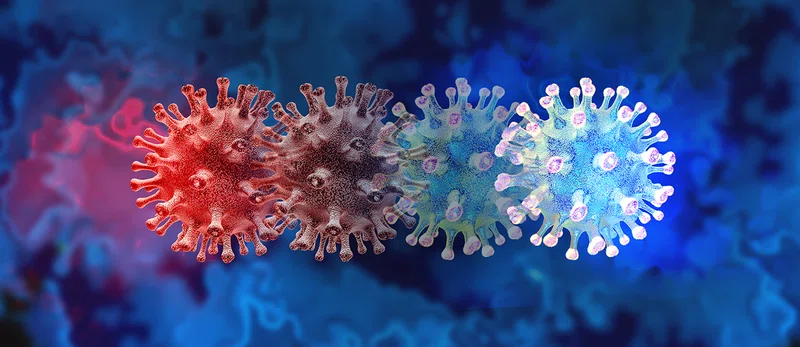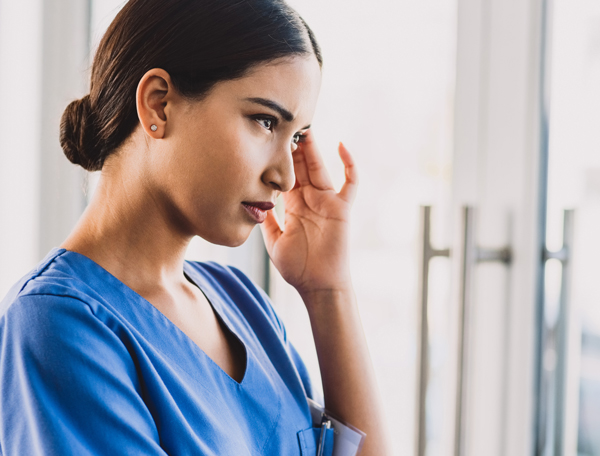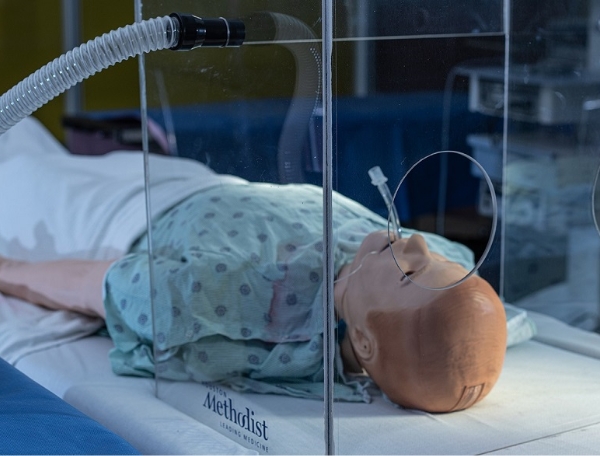


Outcomes Research
COVID-19 UK variant cases doubling weekly

Genome sequencing confirms COVID-19 UK variant more contagious
A recently published Houston Methodist study revealed a rapid, widespread and preferential increase of the SARS-CoV-2 UK B.1.1.7 variant throughout the Houston region. The estimated case doubling time is 6.9 days.
March 24, 2021 – Houston Methodist infectious disease pathologists have discovered that new COVID-19 cases caused by the SARS-CoV-2 UK B.1.1.7 variant are doubling weekly. By mid-March, the number increased sharply to 648 cases from 305 just a week earlier. The findings come from the latest group of 8,857 virus genomes sequenced from patients with positive COVID-19 tests in the first two months of 2021, representing 94% of Houston Methodist cases. The eight Houston Methodist hospitals are widely distributed across the metropolitan area and serve demographically diverse patients.
We’ve estimated the doubling time for UK variant B.1.1.7 to be approximately seven days, which has Houston on track to be dominated by this variant within the next four to six weeks. This work clearly shows a very rapid spread of the UK B.1.1.7 variant in the metropolitan Houston area.
James M. Musser, MD, PhD
Chair, Department of Pathology & Genomic Medicine
Fondren Presidential Distinguished Chair
Director, Center for Molecular & Translational Human Infectious Diseases Research
Professor of Pathology and Genomic Medicine Houston Methodist

Musser said his team is sequencing additional SARS-CoV-2 genomes daily, so numbers of the UK variant will increase as a consequence.
“Like in Houston, there is something preferential for this variant in the U.K., which currently accounts for 98% of new cases in that country,” Musser said. “Given that similarity and the doubling rate we estimated for Houston, it’s crucial for individuals to get vaccinated as soon as possible to control the spread of this very contagious and increasingly common variant. In the meantime, I can’t stress enough the importance of continuing the fundamental precautions of wearing masks, social distancing and limiting exposure to large gatherings.”
He cautions that present figures will always be a lagging number, underestimating the true presence of this variant. Two other virus variants from South Africa and Brazil, however, have not increased at all.
Given the immediate community and national impact of these findings, a report was posted on the preprint server medRxiv. The manuscript entitled, “Rapid, widespread, and preferential increase of SARS-CoV-2 B.1.1.7 variant in Houston, TX, revealed by 8,857 genome sequences,” is also under peer-review with a prominent medical journal.

James M. Musser, M.D., Ph.D., is the corresponding author on the study
Although this variant has been found to be more contagious than other SARS-CoV-2 Houston strains, Musser said the good news is the vaccines currently being used in the U.S. are highly effective against the U.K. variant, which will help control the spread and reach herd immunity. The genome sequencing results showed none of the 648 cases had the change in spike protein (E484K) that can cause decreased recognition by antibodies.
Musser, JM, Olsen, RJ, Christensen, PA, Long, SW, Subedi, S, Davis, JJ, Gollihar J. Rapid, widespread, and preferential increase of SARS-CoV-2 B.1.1.7 variant in Houston, TX, revealed by 8,857 genome sequences. medRxiv. March 24, 2021; Preprint DOI: https://doi.org/10.1101/2021.03.16.21253753
This study was supported by funding from the Houston Methodist Academic Institute Infectious Diseases Research Fund and with federal funds from the National Institute of Allergy and Infectious Diseases, National Institutes of Health, Department of Health and Human Services, under contract number 75N93019C00076.
Lisa Merkl, March 2021








